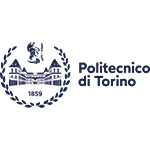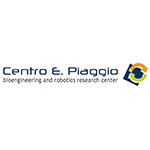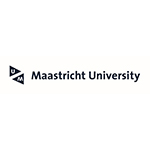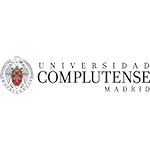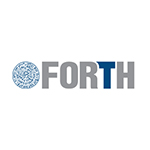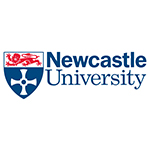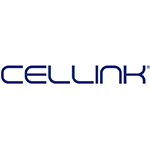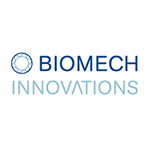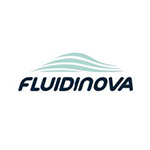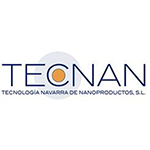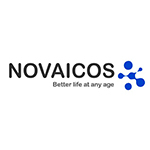Partners
The research partners are:
Politecnico di Torino (ITALY) and Universitad Complutense de Madrid (SPAIN) focusing on smart nano-biomaterials for bone regeneration, Newcastle University (UK) for the development of resorbable polymeric blends: these three partners will also develop strategies for surface functionalisation with novel biomolecules.
Additive manufacturing expertise comes from Università di Pisa (ITALY) and Universiteit Maastricht (NETHERLANDS).
Collagen-based formulations and bioresorbable polymeric blends are another area of expertise covered by the group of Politecnico di Torino (ITALY) and Newcastle University (UK), respectively.
The in vitro biocompatibility evaluation in bone-mimicking co-culture is performed by Foundation for Research and Technology Hellas (GREECE), while the partner with consolidated expertise in multiscale modelling and mechanical characterisation of biomaterial is Dublin City University (IRELAND).
On the other side, the industrial partnership has been shaped in order to provide the right level of expertise and skills needed to bring GIOTTO cutting-edge results close to the patient and the market.
IoT innovation will be targeted across the whole project both by a research partner (Dublin City University – IRELAND) and by the SME leader in this field Yodiwo (GREECE).
The industry partners are:
Two SMEs with a core business in nanomaterial production: Fluidinova SA (PORTUGAL) for the doped nano-hydroxyapatites and mesoporous bioactive glasses and Tecnan (SPAIN) for the functionalised superparamagnetic nanoparticles.
A company leader in 3D printer and inks Cellink AB (SWEDEN) has been involved for the exploitation of the bio 3D printed device and inks.
Functionalised collagen and biomolecule able to inhibit bone resorption will be developed by Novaicos SRLS (ITALY), Biomech Innovations AG (SWITZERLAND) will establish health economic models to identify the patient cohorts for GIOTTO devices and will supervise the implementation of ethical best strategies.
Yodiwo (GREECE) will be involved in the IoT innovation.
BeWarrant (BELGIUM) is the manager of exploitation, dissemination and communication of the project towards all groups of stakeholders, to ensure that all interested people will be aware of GIOTTO activities and results.
Politecnico di Torino (www.polito.it) was founded in 1906 and is internationally ranked among the most important universities in Europe for engineering and architecture studies, with 33,000 students (out of which 15% are international students coming from over 100 different countries), 700 Ph.D. students and more than 3000 employees. POLITO is a center of excellence for education and research in engineering, architecture, design and planning and it works in close cooperation with the socio-economic system. In November 2013, POLITO was awarded by the EC with the label “HR Excellence in Research”, recognizing its commitment in offering to researchers coming from all over the world a positive and challenging environment. POLITO can count on a great experience both in scientific projects and administrative management with more than 230 FP7 projects (66M€) and 142 Horizon 2020 funded research and innovation projects (about 50M€).
The group of IRIS – Improving Regeneration by Smart Scaffolds, led by the Project Coordinator will be involved in the project.
The University of Pisa (http://www.unipi.it) is one of the biggest and most well established universities in Italy. Although formally founded in 1343, there are records to indicate that the university has been active since the 11th century. Today it boasts 20 departments with high level research centres in the sectors of agriculture, astrophysics, computer science, engineering, medicine and veterinary medicine. According to QS 2018, the University of Pisa ranks in the top 100 universities in the fields of Physics, Maths and Natural Science, in the top 150 for Computer Science and Engineering and its Department of Ingegneria dell’Informazione was recently ranked amongst the top 3 in Italy. The Research Center “E. Piaggio” (http://www.centropiaggio.unipi.it) is located in the School of Engineering and is one of the oldest interdisciplinary research and technology transfer centres in Europe, devoted to the training of personnel for careers in Research and Development. Its main focus is Robotics and Bioengineering, with 4 pivotal themes- MIND, MATTER, MOTION and MANIPULATION all dedicated to improving the quality of life and the performance of machines using biological systems for inspiration.
Institute for Technology inspired regenerative medicine (MERLN) – Department of Complex Tissue Regeneration (CTR)
The department holds a prominent international position in the regeneration of vascular, bone and cartilage tissue. CTR was also active in skin regeneration, and most recently it became very active in the generation of regenerative medicine strategies for peripheral nerve repair. The groups’ efforts focus on development of scaffolds, improvement of cell- and growth factor-based tissue engineering, design of high-throughput screening methods and bioreactors with the goal of improving methods for complex tissues and organ regeneration. One of the most relevant activity of CTR is the development and implementation of biofabrication technologies to produce scaffolds for tissue regeneration (see in the last part of the document the number of projects relevant for the GIOTTO project.
Universidad Complutense de Madrid (UCM) is the largest Universities in Spain. With a tradition beyond 5 centuries, UCM has become a very important institution in terms of higher education and research activities. UCM is home of research groups which are in the cutting edge of research in many areas. UCM technological scientific infrastructure (with an annual budget almost reaching 600M€), together with the quality of its researchers (almost 6000), has established some of its laboratories among the best in Europe. The Smart Biomaterials Research Group (http://www.valletregigroup.esy.es) is a multidisciplinary team located in the Department of Chemistry in Pharmaceutics Science; Faculty of Pharmacy, Complutense University of Madrid). This group is also member of the Biomedical Research Networking centre in Bioengineering, Biomaterials and Nanomedicine (CIBER-BBN) and of the Research Institute of the Hospital 12 de Octubre (I+12). The group is internationally recognized as pioneer in the field of mesoporous ceramic materials applied to biomedicine.
The Foundation for Research and Technology-Hellas (FORTH) is the premier research centre in Greece, internationally acknowledged for its excellence in basic and applied research, in developing applications and products, and in providing services. The Foundation, with headquarters in Heraklion, includes six Research Institutes in different parts of the country. The Institute for Electronic Structure and Laser (IESL), one of the six Institutes of FORTH, will be contributing to the GIOTTO project. FORTH-IESL has a 28-year history of internationally competitive R&D contributions, as well as of academic and industrial cooperation; it has adopted an evolving strategy to promote the commercial exploitation of R&D results by providing services, licensing products to industrial partners, contracting with industrial partners to jointly develop new products, and participating in spin-off companies. The Institute ranked first among all Greek institutes of its field.
The University of Newcastle upon Tyne is a major regional University in the UK and is internationally recognised for the high quality of its research and teaching. The University is closely integrated into the economic, cultural and social life of the North East of England, and currently has over 26,000 students, with over 6,000 staff and an annual income in excess of €500m. The work at Newcastle within the GIOTTO project will involve close collaboration between two different departments of the University:
- The School of Engineering is a multidisciplinary school offering a wide range of excellent undergraduate and postgraduate degrees, covering topics from many facets of engineering science and practice. Research is organised in three main themes: Bio and Environmental Engineering, Materials and Manufacturing and Infrastructure.
- The Centre for Oral Health Research (COHR) at Newcastle University School of Dental Sciences is a multidisciplinary, cross-faculty research centre whose mission is to conduct world-class multidisciplinary research which improves oral health through academic excellence, policy impact and commercial innovation. It is in the top 40 best dental schools in the world based on their academic reputation, employer reputation and research citations per paper.
Dublin City University (www.dcu.ie) is a young, dynamic and ambitious university formed in 1981 with a distinctive mission to transform lives and societies through education, research and innovation. DCU’s excellence is recognized internationally, and it is ranked among the top 50 young universities worldwide (QS ‘Top 50 under 50’ 2014). The five faculties – Engineering and Computing, Science and Health, Humanities and Social Sciences, Institute of Education and DCU Business School – host over 2,600 postgraduate students, of whom over 700 are research students and have signed ongoing international collaborations with other European, Asian and US universities. Centre for Medical Engineering Research (https://www.dcu.ie/medeng/index.shtml)
The Centre for Medical Engineering Research (MEDeng) headed by Professor Nicholas Dunne is an internationally leading research centre focused on translating engineering and materials research into healthcare solutions. The centre has six overarching research themes at the interface of materials science, engineering and biology – providing underpinning fundamental research to facilitate the stratified clinical and industrial framework for the development of biomaterials, medical devices and implants for tissue repair and regeneration.
Insight Centre for Data Analytics (www.insight-centre.org) is Ireland’s leading research centre for the study of Data Analytics. In a joint initiative between Dublin City University, NUI Galway, University College Cork and University College Dublin, Insight brings together more than 400 researchers and works with more than 75 industry partners. The centre performs fundamental and applied research in a range of research areas, including data analytics, recommender systems, media analytics, real-time analytics, data streams and sensor networks, knowledge discovery, natural language processing, social network analysis, among others.
beWarrant (http://www.efdbewarrant.eu) is a branch of the Italian company Warrant Hub SpA – Tinexta Group, a privately held consultancy services company that provides full-spectrum consulting in business finance. Warrant Hub has been active since 1995, growing over the years to become a leader in its sector today. WH Business Units work in synergy with its Innovation Lab to give their clients the best support tools for the success of their business initiatives and to assist them in the preparation and management of strategic projects: business projects, research projects, training and technology transfer activities, under National and International support frameworks.
The European Funding Development (EFD) team provides consultancy, training and support on European Funding opportunities, and in the preparation, negotiation and management of European Proposals, particularly on H2020 calls. EFD offers also support for communication and dissemination activities, and periodically participates into and organizes sectional seminars and networking events with/for industrial associations, SMEs, policy makers, etc. thus having the opportunity to disseminate the project results to relevant audiences.
CELLINK AB is focused on developing cost-effective 3D bioprinters together with universal and cell-specific bioinks with good printability and bioactive properties. By doing this, we empower scientist while also breaking the barriers related to cost and technology adoption for new scientists to enter the exciting field of 3D bioprinting. CELLINK® is a bioink that can universally be used on a wide range of 3D Bioprinters to biofabricate 3D tissue models for in vitro studies.
Biomech Innovations AG (BMI) is a private limited company incorporated in Switzerland (www.biomechinnovations.com). The purpose of the company is the research, development, production and marketing of products, consulting, trade in goods and the provision of services of all kinds in the field of medical technology, medicine and pharmaceuticals.
Located in the Porto area, Portugal, FLUIDINOVA (FLU) was created in 2005 as a spin-off from the Faculty of Engineering of the University of Porto. FLU has ISO9001 certification since 2008. FLU is a specialized manufacturer and supplier of synthetic nano-hydroxyapatite and tricalcium phosphate materials marketed as nanoXIM. Our proprietary technology (patented in 2005, #WO/2005/077508) is a new concept for mixing liquids and/or gases in a continuous mode through a matrixed network of inter-connected micro-reaction chambers allowing for very high degrees of fluid mixture control. This science is valuable because it allows for precise control of factors – like temperature, pH and crystal/particle size – in many types of complex reactions.
Navarrean Nanoproducts Technology (TECNAN) was created in December 2007 with the aim of producing and commercialising at industrial scale simple and complex high performance nano-oxides for multi-sectorial applications. This business oriented concept has resulted in the emergence of TECNAN as one of the most competitive suppliers of these new materials throughout Europe. The flexibility of the production techniques employed by TECNAN enables a broad-range preparation of nanomaterials according to the requirements of clients. Those varied nanomaterials have applications in very different sectors and can be employed as catalysts for the automobile industry and the energetic sector, sensors for gases and atmospheric pollutants, photocatalysts, materials for lighting devices, pigments to be used in inks and many other uses, electronic and photovoltaic materials, cosmetic, paint and varnish, etc. TECNAN, supported by highly skilled scientists, has access to state-of-the-art facilities for the production of different kinds of nanoparticles in relatively large amounts (up to 5 kg/h) and characterised by their high purity. Using both wet and dry technologies, TECNAN is capable to synthesize nanoparticles in the range of the tens to the hundreds of kilograms.
Novaicos is the acronym of Novara (the city in which the scientific idea was born) and ICOS the molecule studied within the company. It was founded in May 2016 by a group of researcher from University of Novara (UPO) and University of Torino (UNITO). Novaicos is a new biotech company focused on innovative approach for the therapy of bone-loss related diseases, our slogan is: “Better Life at Any Age”. The mission of NOVAICOS is to develop new drugs able to inhibit bone resorption in osteoporosis, osteolytic tumours and other diseases with excessive bone
erosion. Novaicos received the award as the best innovative start-up in Piemonte and Valle D’Aosta “Premio città di Novara/fondazione BPN” in 2015 and is the winner of the Start-up academy competition founded by Unicredit as best Start-up in life science for 2017, moreover Novaicos is between the finalist for the Leonardo prize for best innovative start up in Italy for 2017.
Yodiwo (YODI) is positioned in the Enterprise “Application Enablement” IoT Cloud Platform market and excels at addressing complex business challenges in the IoT / M2M space. The platform integrates storage systems, data analytics, machine learning for computer vision and predictive maintenance, while it supports device management, multi tenancy, thing sharing and grouping among other advanced features which make it ideal for applications that require multi-site collaboration. Although the platform is generic and made to serve any vertical, YODI’s preferred applications relate to IoT health monitoring systems, asset tracking, energy management in smart buildings, smart metering and predictive maintenance. Yodiwo has presence in Europe with offices in Greece, Sweden and Cyprus and works with partners in several other countries.
